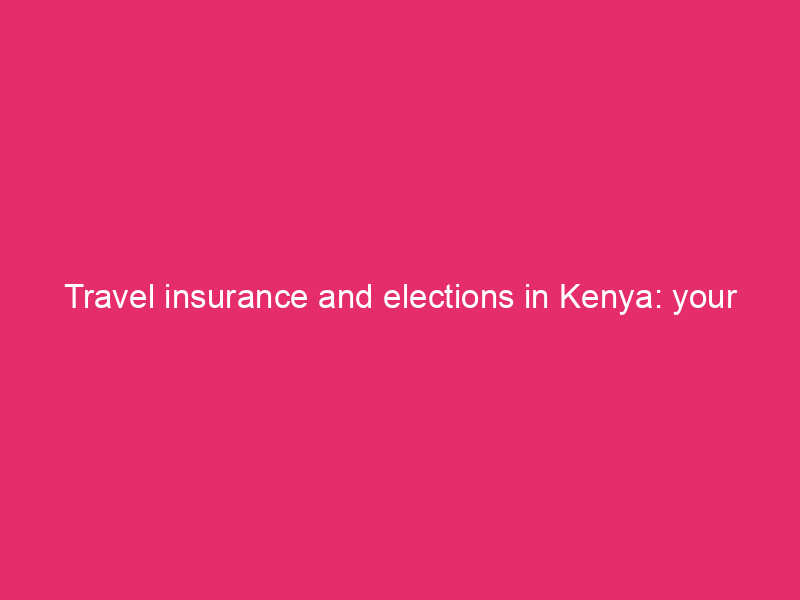The recent elections in Kenya have had enormous consequences in the country and beyond. When it was announced that President Mwai Kibaki had won the election by just 230,000 votes (out of 10,000,000 voters), widespread political anger spread throughout the country and violence erupted. Subsequently, all travel to the country was discouraged and many people had to claim their global travel insurance, which was confusing given the unusual circumstances. More on that later, but first some background on the events surrounding the Kenyan elections.
So far there have been 600 deaths and some 250,000 people (more than the supposed “majority” of Kibaki) who have fled their homes. The reason for this is the ongoing allegations of voter fraud, and the evidence of this has really started to mount, with many strong allegations surfacing, including the Kenyan electoral commission chief admitting that one constituency had the surprising and improbable electoral participation. 115%! Elsewhere, results were announced differently at the national level than at the local level, with results being delayed 24 hours at a time when Kibaki’s Kenyan electoral rival Raila Odinga was leading in the polls. It is not surprising that suspicions were widespread, and it is also not surprising that they sparked riots, which have erupted into the violence that has engulfed the nation ever since.
One area this has affected the most is Kenya’s previously active tourism industry, and is easily the country’s largest source of foreign income, totaling an estimated £500,000,000 per year. At the beginning of the year, Kenya could generally be expected to receive hundreds of tourists a day; the recent fallout reduced the numbers to a brave few who had chosen to ignore the unavoidable warnings from the Foreign Office about traveling to the country. which was later placed on the “civil unrest” list of places not to visit. Subsequently, the Federation of Tour Operators canceled all holidays to Kenya, and many people who had pre-booked to visit the fascinating country had no choice but to hastily cancel and check the fine print on their worldwide travel insurance policies.
Well, now the Foreign Office advice has been lifted and you can start traveling to Kenya again (although the FCO still advises against travel to Western and Nyanza provinces, the Rift Valley province between Narok and Kitale, the central district business, Kibera, Mathere and Eastleigh areas of Nairobi, Uhura Park and Mombasa Town). But what if something like this happens elsewhere? What steps should you take if you discover sudden and unexpected political fallout affecting a previously peaceful country to which you need to travel? While I cannot speak for all travel insurance providers globally, this is the line we take with Kenya, and I suspect our rivals have taken a similar policy for their Kenya travel insurance policies:
- If you are traveling with a tour operator, they should provide you with a refund or an alternate vacation itinerary in a safer region.
- If you’re traveling independently, you should be able to easily get a refund from your airline and possibly your accommodation provider.
- If for any reason any of these courses of action fail and you have a policy with us, we will offer you reimbursement for unused travel and accommodation, under the terms of a Kenya travel insurance policy.
Obviously I can’t be sure this is the approach that other travel insurance providers around the world will take, but I imagine the vast majority will offer something very similar to those unable to travel due to post-election fallout. of Kenya, and this advice should be applied in times of future disturbances throughout the world. If in doubt, you should contact your provider as soon as possible and agree on the exact terms of your travel insurance.


Comment here